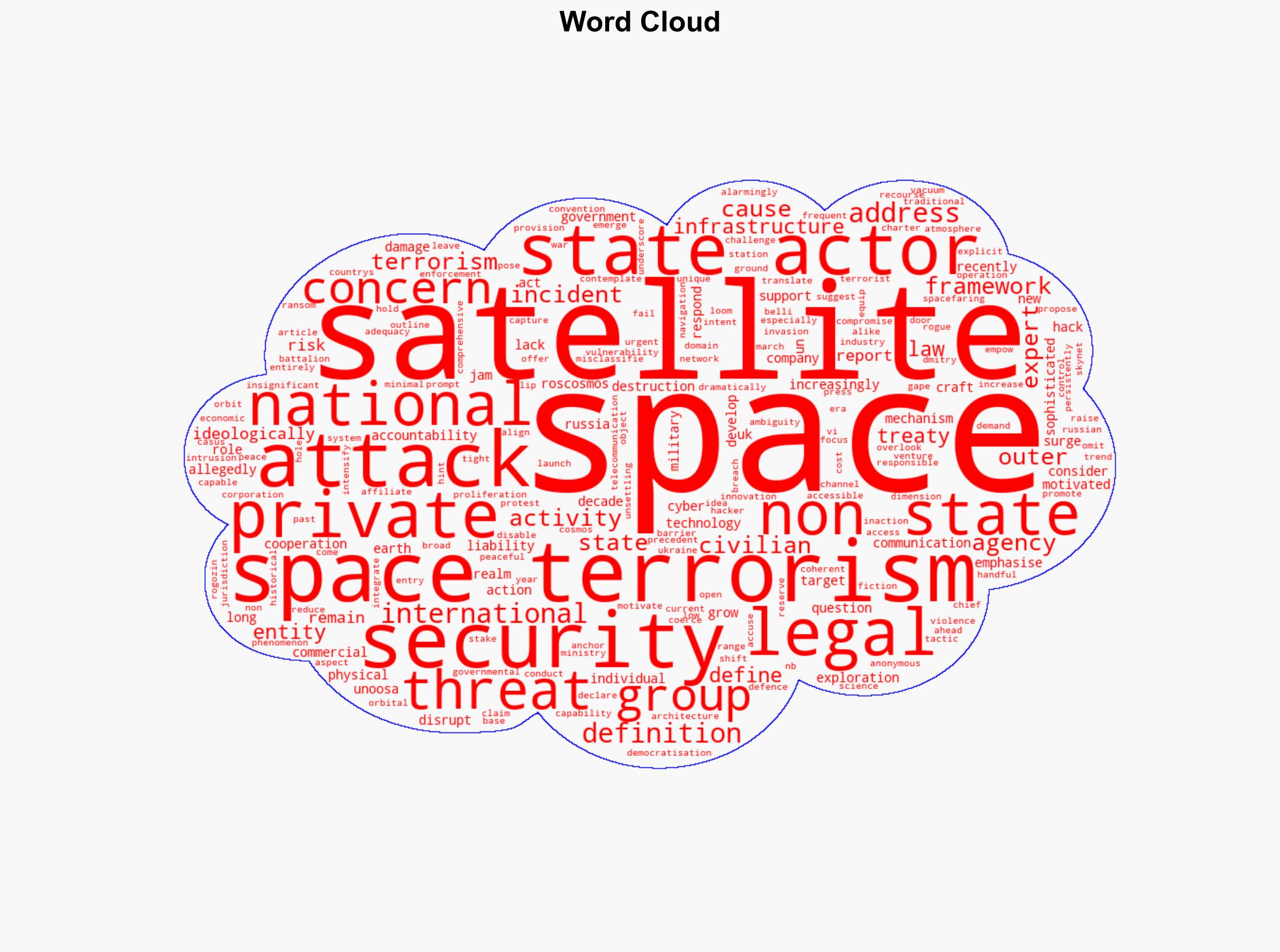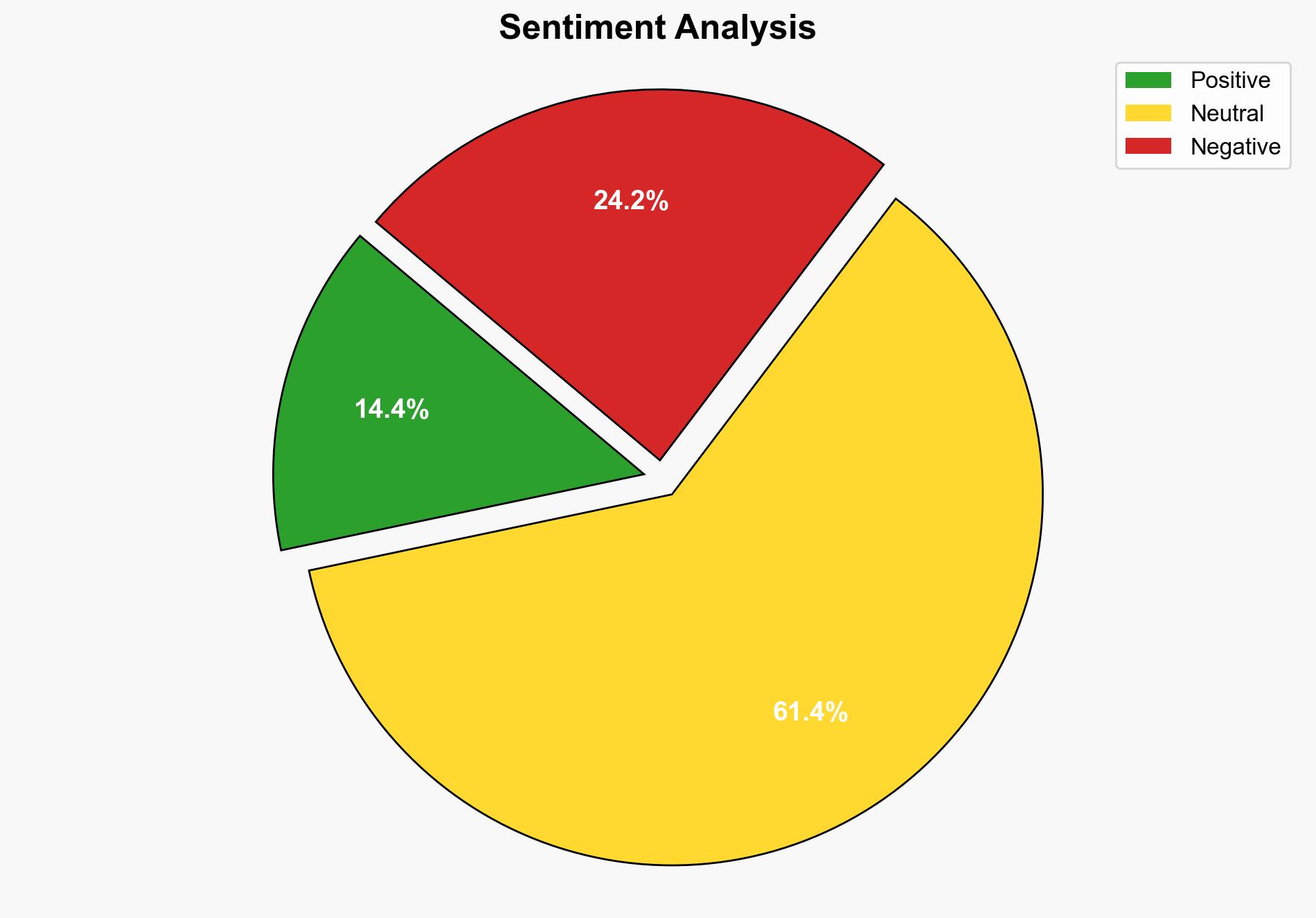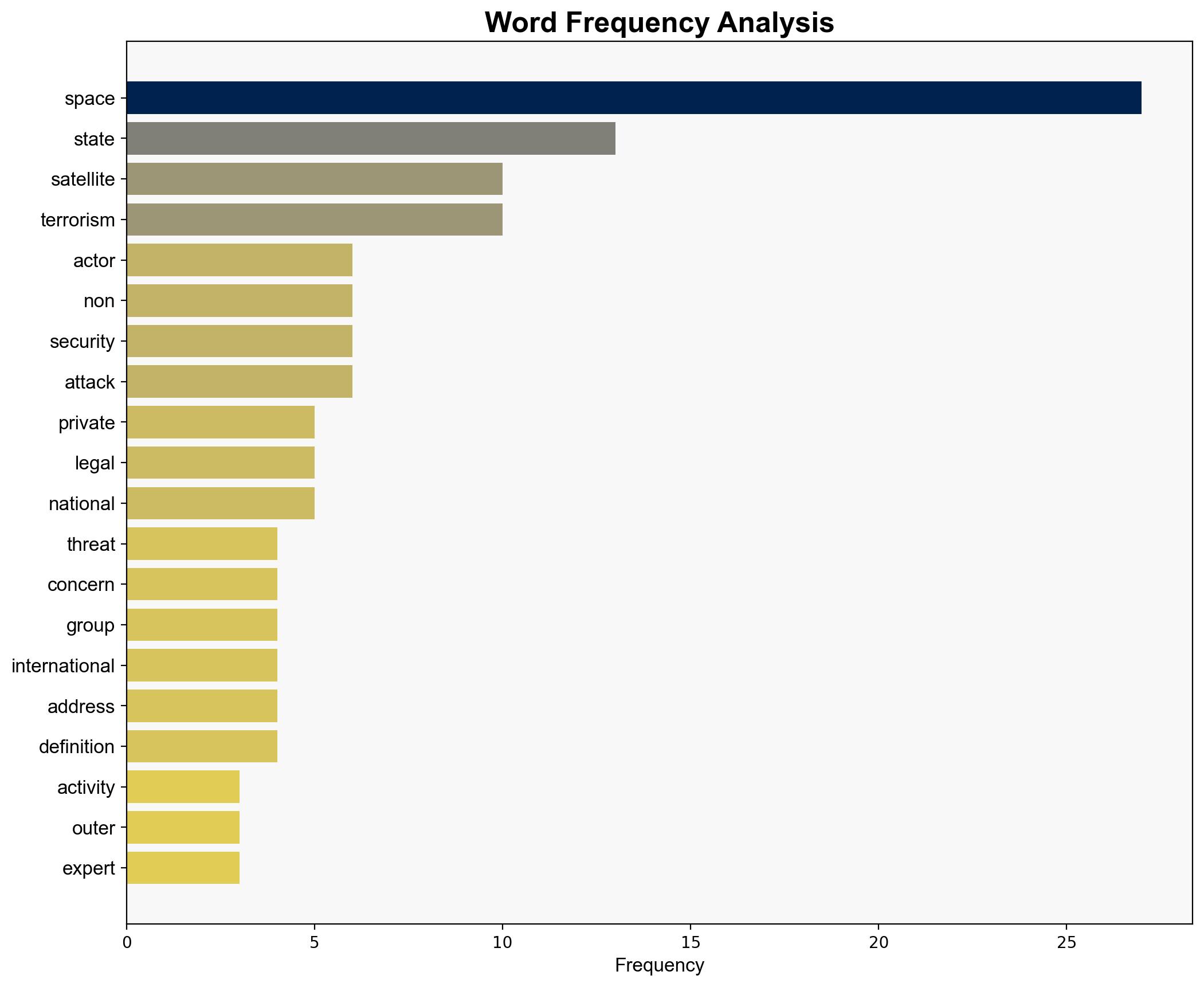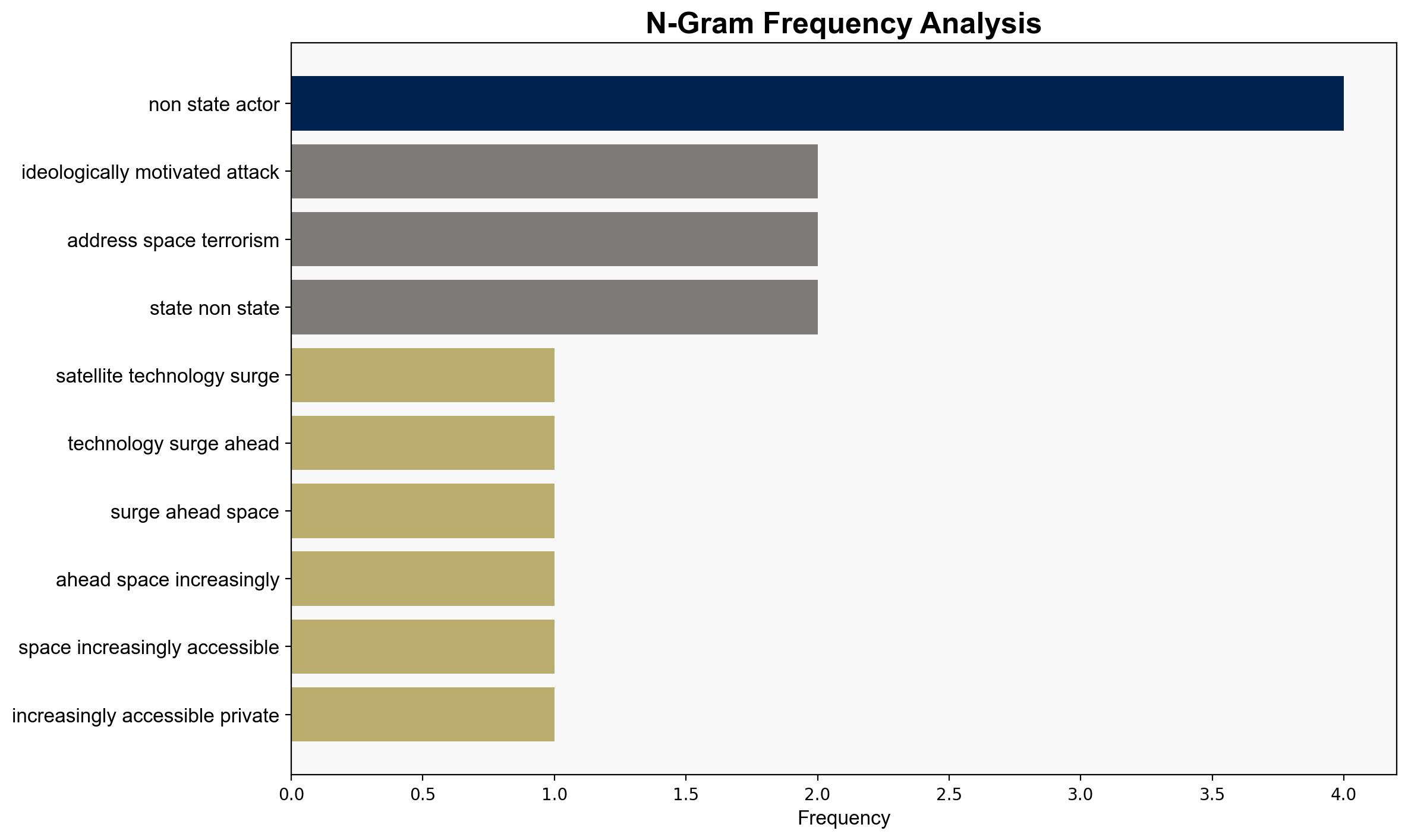The threat of space terrorism is no longer science fiction but were ill-prepared to combat it – The Conversation Africa
Published on: 2025-11-04
Intelligence Report: The threat of space terrorism is no longer science fiction but were ill-prepared to combat it – The Conversation Africa
1. BLUF (Bottom Line Up Front)
The threat of space terrorism is increasingly plausible due to the democratization of space technology, yet current international legal frameworks and security measures are inadequate to address it. The most supported hypothesis is that non-state actors will increasingly target space infrastructure, leveraging cyber capabilities. Confidence level: Moderate. Recommended action: Strengthen international legal frameworks and enhance cybersecurity measures for space assets.
2. Competing Hypotheses
Hypothesis 1: Non-state actors will increasingly target space infrastructure due to reduced barriers to entry and the proliferation of satellite technology. This includes cyber attacks and potential physical sabotage.
Hypothesis 2: State actors will remain the primary threat to space infrastructure, using space terrorism as a tool for geopolitical leverage, with non-state actors playing a minimal role.
Using ACH 2.0, Hypothesis 1 is better supported due to the documented increase in capabilities of non-state actors, such as the alleged hacking of Roscosmos by Anonymous affiliates. The trend of democratization in space technology supports this hypothesis, whereas Hypothesis 2 lacks specific recent incidents involving state actors using space terrorism directly.
3. Key Assumptions and Red Flags
Assumptions:
– Non-state actors have the technical capability to significantly disrupt space infrastructure.
– Current international legal frameworks are insufficient to address space terrorism.
Red Flags:
– Lack of detailed incidents involving state actors directly engaging in space terrorism.
– Potential underestimation of state actors’ covert capabilities.
4. Implications and Strategic Risks
The integration of space systems with terrestrial infrastructure increases the risk of cascading failures in telecommunications and navigation. Economic impacts could be severe if commercial satellites are targeted. Geopolitically, space terrorism could escalate tensions between nations, especially if attribution is unclear. The psychological impact of perceived vulnerability in space could undermine public confidence in space-based services.
5. Recommendations and Outlook
- Enhance international cooperation to develop a comprehensive legal framework addressing space terrorism.
- Invest in cybersecurity measures specifically tailored for space assets.
- Scenario-based projections:
- Best Case: International consensus leads to robust legal and security measures, mitigating space terrorism risks.
- Worst Case: A major cyber attack on space infrastructure causes widespread disruption and geopolitical conflict.
- Most Likely: Incremental increase in non-state actor activities targeting space assets, prompting gradual policy and security enhancements.
6. Key Individuals and Entities
– Dmitry Rogozin: Mentioned in context of Roscosmos hacking incident.
7. Thematic Tags
national security threats, cybersecurity, counter-terrorism, regional focus





